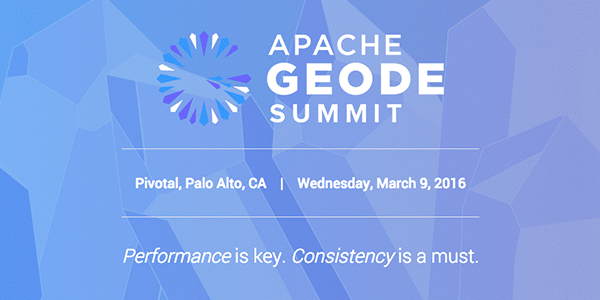
Cross posted from The Pivotal Blog.
Just eighteen months ago Pivotal granted over 1 million lines of code from the Pivotal GemFire code base to The Apache Software Foundation (ASF) to help create the Apache Geode project. We made this decision because we saw many of our enterprise customers gravitating towards open source software-based solutions as part of larger IT modernization efforts. These customers understand products based on open source projects often evolve faster than their closed-source counterparts, provide more roadmap and release transparency, and reduce the risk of vendor lock-in. We couldn’t agree more.
Apache Geode began as a podling in the Apache Incubator project. Since then, an active community of contributors has grown around the project, helping improve and add capabilities to the in-memory data grid. Given the role in-memory data grids and event-driven architectures play in building cloud-native applications, the interest in Apache Geode is no surprise.
It’s been an active and fruitful year for Apache Geode. The first Apache Geode Summit was held in March 2016 and drew close to 100 community members from enterprises including Bloomberg, Southwest Airlines, Murex and TEKsystems, among others. In October 2016, Apache Geode 1.0 was released, a major milestone for any open source project. And now, the Apache Geode community has achieved an important milestone! Pivotal is thrilled that just this week the ASF graduated Apache Geode to a Top-Level Project (TLP), “signifying that the project’s community and products have been well-governed under the ASF’s meritocratic process and principles.” We extend a hearty congratulations to the Apache Geode community, without whom TLP graduation couldn’t have been achieved. This truly was a community effort, representing the best of open source and the “Apache Way”!
Of course, Apache Geode’s graduation to TLP is just one step in a longer journey to help enterprises across industries support mission critical applications with a modern, open-source based, in-memory data grid. This includes supporting an event-driven and microservices-based approach to application architecture. Microservice are autonomous across a network boundary, and inter-microservice communication is best handled through an event-driven approach – a sweet spot for Geode.
Geode and Microservices
Over the last few years, a microservices-based approach has emerged as the ideal way to build web-scale, applications, and more and more enterprises are looking to adopt this pattern for their custom software. The benefits of this approach are compelling, given the availability, scale, and speed that companies like Netflix have achieved.
Here at Pivotal, we’ve been at the forefront of the rise of microservices, with Spring Boot as the de facto Java framework, Spring Cloud Services based on Netflix OSS, and Pivotal Cloud Foundry for continuous integration and delivery. So, how does Geode fit in with this movement?
It turns out Geode is a perfect complement to a microservices architecture thanks to joint development work from the Spring and GemFire teams, the results of which have been extended into Spring Data Geode. In terms of microservices, there are implications for how data is managed when breaking applications down into specific, autonomous services that can be developed and scaled independent of one another, including how data is communicated and shared between different microservices.
From an architectural perspective, an event-based architecture is ideally suited for interactions between these loosely coupled microservices. Fortunately, Geode was designed for event-based architectures and naturally supports a microservices application development approach. The Geode Continuous Query feature, for example, can be used within each microservice for specifying state changes the microservices wants to subscribe to. The events that are of interest to a microservice can be easily specified using OQL. This convergence of features in Geode that fulfill the requirements of microservices is no accident – it is part of Geode’s design. The blazing fast performance of in-memory computing, coupled with an event-based architecture, make Geode an attractive choice for supporting microservices-based applications.
Geode also benefits from over ten years of development (as GemFire), maturing within numerous enterprises, and now advancing through community-based, meritocratic development. The seemingly daunting data challenges of microservices can be met without compromising the benefits of microservices.
Again, a big congratulations to the Apache Geode community for achieving this historic milestone! We at Pivotal look forward to continuing to work closely with the community and Pivotal customers to move the project forward. The sky’s the limit for Apache Geode! Interested in learning more about Apache Geode? Check out this five minute Geode tutorial, ask questions on the Geode mailing lists or on StackOverflow, or download Geode here.

 After his talk, Justin will serve as the moderator for
After his talk, Justin will serve as the moderator for 


 ew months since Project Geode,
ew months since Project Geode,  Today, Pivotal announced the creation of “Geode”, the new in-memory distributed database that will form the open source core of
Today, Pivotal announced the creation of “Geode”, the new in-memory distributed database that will form the open source core of